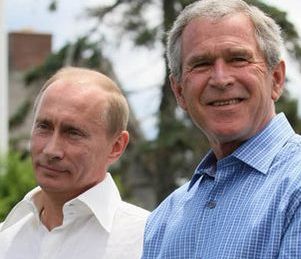WASHINGTON — Eight years ago, the Senate declined to ratify the Comprehensive Test Ban Treaty (CTBT) following President Clinton’s signature and endorsement. Even today, though, many lawmakers, analysts, and voters continue to push for it and the treaty remains on the calendar of the Senate Foreign Relations Committee. As nuclear politics have increased in importance — especially following developments in Iran and North Korea — Sen. Carl Levin (D-Mich.) is reportedly attempting to revive a debate on the treaty by attaching a “sense of Congress” resolution to the annual defense authorization bill, now being considered in Congress, which will express […]
WMD Archive
Free Newsletter

On July 10, the U.N. Monitoring, Verification and Inspection Commission (UNMOVIC), which had conducted WMD inspections in Iraq, formally ceased operating when its staff contracts expired. Two weeks earlier, on June 29, the U.N. Security Council (UNSC) had voted to dissolve the commission. This Security Council decision was a mistake. The UNSC should instead establish a small force of WMD inspectors that could assist with current WMD monitoring tasks and could rapidly expand to lead future U.N.-authorized inspection missions. UNMOVIC was the immediate successor to the U.N. Special Commission (UNSCOM), established by the UNSC in 1991 to oversee the postwar […]

On June 7, at the G-8 summit in Heiligendamm, Putin surprised his fellow heads of state by offering to provide the United States with unprecedented access to real-time data from the Russian-leased Gabala radar station in Azerbaijan. In return, Putin proposed that Washington freeze its plans to deploy a ballistic missile defense (BMD) radar in the Czech Republic and BMD defensive interceptor missiles in Poland. Putin and other Russian officials argued that, by using the Gabala complex, the United States would be able to closely monitor missile tests in Iran and would have ample time to deploy BMD against an […]
